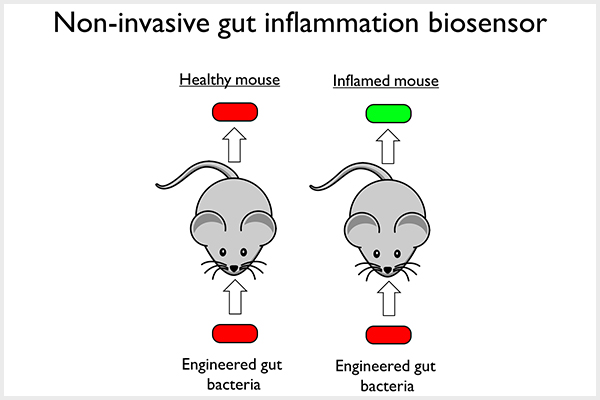
Full Text:
Synthetic biologists have engineered gut bacteria capable of sensing colitis, an inflammation of the colon, in mice. The research points the way to new experiments for studying how gut bacteria and human hosts interact at a molecular level and could eventually lead to orally ingestible bacteria for monitoring gut health and disease.
Previous work has suggested that alterations to the gut microbiota, genetic predisposition and other environmental factors may play key roles in inflammatory bowel disease, a condition that includes Crohn’s disease and ulcerative colitis and which affects as many as 1.6 million Americans.Image credit: J. Tabor/Rice University